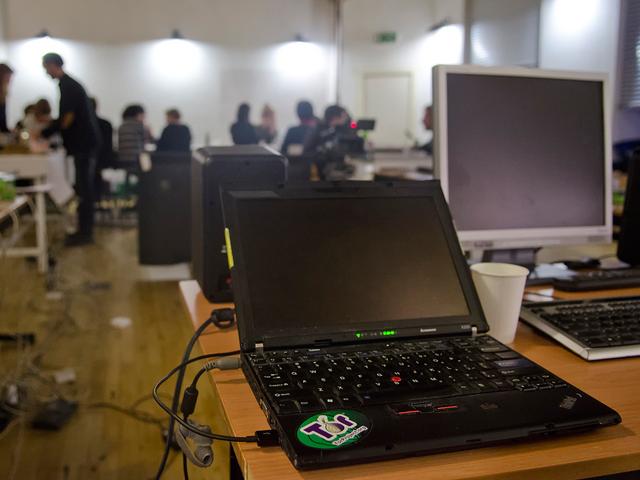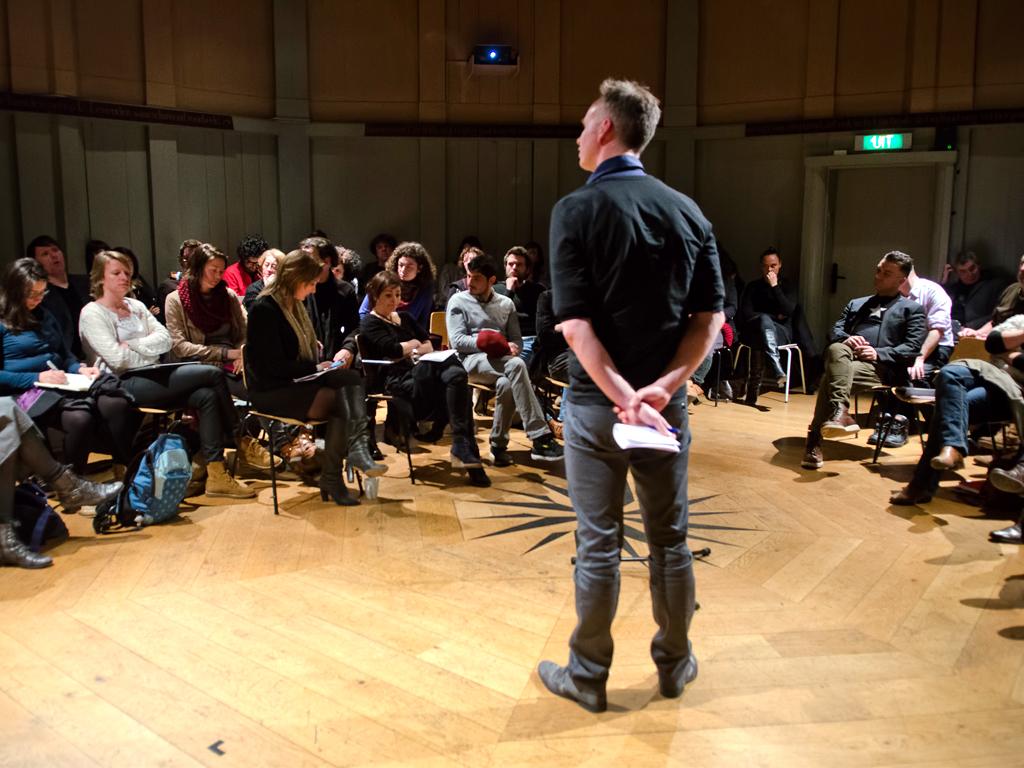Should we all become hackers? My answer is ‘no’. But if you ask me if we all should develop some hacker mentality, my answer would be ‘yes’, most definitely.
Last week I participated in a weeklong workshop ‘Behind the scenes of the Internet’, organized by anthropologist Dorien Zandbergen (Leiden University), Netwerk Democratie, Veenfabriek and my colleagues at Waag. The workshop was hosted by hackers, artists and teachers Julian Oliver and Danja Vasiliev, who’s Critical Engineering Manifesto you should check out.
I expected a week consisting of shocking information and ethical discussions on security, privacy and ownership. And my expectations were met. But, what I didn’t expect was that during half of the week, the 25 participants and myself were immersed in a crash course on Linux command line; hardcore.
I have to admit I was somewhat sceptical about the necessity of learning to build our own networks, through wired and wireless connections. But pretty soon I developed a romantic image of myself being a true hacker, drinking coffee in a trendy café surrounded by nerds wearing ‘difficult glasses’, sitting behind a black screen filled with incomprehensible digits, commands and codes, looking very focussed and typing extremely fast, while secretly breaking into national governments computers, discovering and publishing classified information etc etc... I guess you get the picture.
It turned out that the reality of becoming a hacker is quite complicated, takes a lot of hard work and is actually comparable to a craft that cannot be mastered in three days. And after hours and hours of wrestling with command line, I felt like I had been taught a couple of thousands of words of an undefined foreign language and I really needed to get to bakery to order a bread just to be able to put my new skills into practice.
And so we did. We did go outside to put our acquired knowledge and skills into practice and we invaded that trendy café in the centre of Amsterdam. And all of a sudden I was surrounded by geeks behind computers (my fellow participants) tracking and tracing data and images that were at that very moment being transported via the wireless network. And, although hacking highly secured networks is something I will never be able nor aspire to do, I did managed to find out that someone in my near environment was searching for ‘high blood pressure’ and ‘Radbout hospital’ and that fashion editor Aynouk Tan was on the same network as I was.
Am I a hacker now? No, I am not even close. But I gained a lot of valuable insights. I learned that Internet belongs to the corporations that own the cables and the infrastructure, services and channels. That modern technology is increasingly inaccessible, like a black box and that is both a marketing and political decision. That currently our relationship towards the Internet is that there is someone capable of writing, but most of us can only read. That the technology we depend upon should be understood, just as a person you depend upon and the car you drive. By getting to know all layers of our network environment - material, political and institutional – I did gain insight in what ways our network environment governs us, and to what extend we can control this environment.
This week I was offered a peek into a world that is very alien for me and probably for most of us. And at this point I’m afraid I am aware of more problems than solutions. But I do know that there are ways to protect myself and I feel more educated and empowered. Besides that, this week reconfirmed my conviction that learning through doing and making is extremely powerful and that we should educate each other and ourselves.
Cryptoparty
And the good new is: we can start right now. By organizing more of these workshops and with the practical book CryptoPartyHandbook which is designed to help those with no prior experience to protect their basic human right to Privacy in networked, digital domains. You can download it for free.


